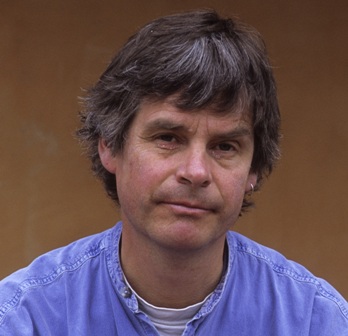If you have more than a few gardening books on your shelf, it’s likely that at least one of them has been authored by Noel Kingsbury. Noel, our Q and A subject for September, is a prolific author, garden designer and consultant, and communicator, as well as an Associate in the Department of Landscape at The University of Sheffield. To learn more about Noel, check out his website and his blog. You won’t be disappointed. We’re thrilled that he is participating in this month’s Q and A.
What is the one thing that we’d be surprised to learn about you?
I’ve got a degree in politics.
If you weren’t in the world of gardening, what would you be doing?
All sorts of things could have been possible if you re-run the tape of time. I might have gone into architecture, or something more scientific – like ecology or biotechnology or agricultural plant breeding. Or something in the art world maybe.
If you could be a plant in another lifetime, what would it be?
![Iris_sibirica_near_Lj_Slo[1].jpg-Noel Kingsbury-resized Iris_sibirica_near_Lj_Slo[1].jpg-Noel Kingsbury-resized](https://gardeninggonewild.com/wp-content/uploads/2009/09/Iris_sibirica_near_Lj_Slo1.jpg-Noel-Kingsbury-resized.jpg) Iris sibirica I think: it’s a great survivor, not spectacular, but nearly always looking good. Its leaves and seedheads seem to cope with such a variety of conditions: and slowly, steadily spread but not at all in an invasive way, co-existing with other plants. A bit like me: not spectacular, reliable, easy to get on with and very, very persistent.
Iris sibirica I think: it’s a great survivor, not spectacular, but nearly always looking good. Its leaves and seedheads seem to cope with such a variety of conditions: and slowly, steadily spread but not at all in an invasive way, co-existing with other plants. A bit like me: not spectacular, reliable, easy to get on with and very, very persistent.
Out of all of the books you’ve written, which is your favorite one and why?
The one which isn’t out yet, though University of Chicago Press is supposed to be bringing it out in October, Hybrid: The History and Science of Plant Breeding. Of the others, The New Perennial Garden broke a lot of new ground and is still pretty relevant: I know a lot of people find it useful and inspiring.
Did you evolve from a traditional to a naturalistic/ecologically minded gardener? If so, how and when did the transformation occur?
I used to be a bit of a plant collector. I came to gardening because of a love of plants. The next thing was thinking about how and why they grow together, which is what ecology is all about. Travelling and seeing plants in their wild homes was very important too in making me think about naturalistic design. In natural habitats, it was the combinations as much as anything I found pulled me in.
Is there one aspect of gardening that you’d like to pursue more extensively in the future?
I often wonder what it would be like gardening in a completely different climate: the tropics or a continental climate. No prospect in the immediate future though.
You believe that gardeners should ‘engage’ with the world beyond the garden, including art, philosophy, economic, politics and the environment. Why?
Gardening, like all spheres of human activity doesn’t happen in a bubble, it reflects our interests and concerns in the wider world. Yet it gets shut off as a sort of harmless hobby, supposedly separate from everything else, which gives it a low status. This low status is inevitably reflected in the low priority given to public gardens and to the pay and conditions of gardeners. I like gardeners to reflect on what they are doing, and feel that gardening is art as well as a craft and that gardens can say something, reflect on the human condition, our place in the world and comment on things. The relationship with the environment is obviously crucial, as gardening is at the core of the interaction between humanity and nature. How we garden reflects our attitudes towards the earth and life as a whole.

